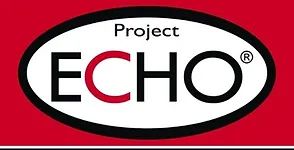
OTHER LEARNING OPPORTUNITIES
Project ECHO Info
What is it?
Project ECHO (Extension for Community Healthcare Outcomes) is a telehealth educational framework designed to democratize knowledge and expand access to specialty care, particularly in medically underserved areas. The framework centers on connecting specialist team "hubs" with community-based "spokes" through interactive videoconferencing sessions.
Over the last decade, Telehealth ROCKS has grown to a partnership of over 80 organizations with the vision of “schools and communities where every child and family have the resources and skills they need to have the exact same opportunity for success in school and in life.” Telehealth ROCKS has built a regional network supporting over a dozen rural school districts with school-based community health workers. ECHOs are a part of the overall Telehealth ROCKS approach that advances health by meeting foundational, prevention, and clinical health needs. The goal is children who experience increased support across their environments, families who feel empowered rather than overwhelmed, and communities that develop sustainable capacity to advance best practices locally.
The Telehealth ROCKS ECHO series aims to transform how families, schools, and communities work together to support children with medical complexity. By creating shared learning spaces where all stakeholders teach and learn together, ECHO builds the collaborative competencies needed for coordinated care. Find Telehealth ROCKS ECHO educational components and pedagogical principles, built on the foundation of the family-school-community partnership:
Key ECHO Components
- Case-Based Learning: Rather than traditional lectures, sessions focus on de-identified patient and family cases. When patients and families participate in planning these presentations, they help ensure the case formats reflect their actual lived experiences and priorities, making the learning more authentic and family centered.
- Collaborative Learning: The model emphasizes peer-to-peer learning among spoke participants, not just expert-to-learner transmission. Including patient and family voices in this collaborative space brings critical perspectives about treatment adherence, quality of life impacts, and care coordination challenges.
- Mentorship and Support: Hub specialists provide ongoing mentorship, creating sustained relationships rather than one-off consultations. Family involvement in educational planning helps mentors understand the real-world context where care is delivered.
Pedagogical Principles Applied in Telehealth ROCKS ECHOs
- "All Teach, All Learn": Everyone in the network is both teacher and learner, recognizing that community providers bring valuable real-world experience. When extended to include patients and families, this principle acknowledges them as experts in their own experience and essential teachers about what works in practice.
- Just-in-Time Learning: Education is delivered when learners need it most - when they're actively caring for children. Family input in educational planning ensures this timing aligns with actual needs, priorities, and shared decision making. The framework focuses on building local capacity to advance best practices.
- Cultural and Social Context Integration: Patient and family involvement ensures educational cases reflect the social determinants, cultural factors, and family dynamics that significantly impact health outcomes and care coordination.
Learn more about the ECHO Model origins and impact by visiting the University of New Mexico Health Sciences Project ECHO page.
View the Telehealth ROCKS ECHO presenter guide.
